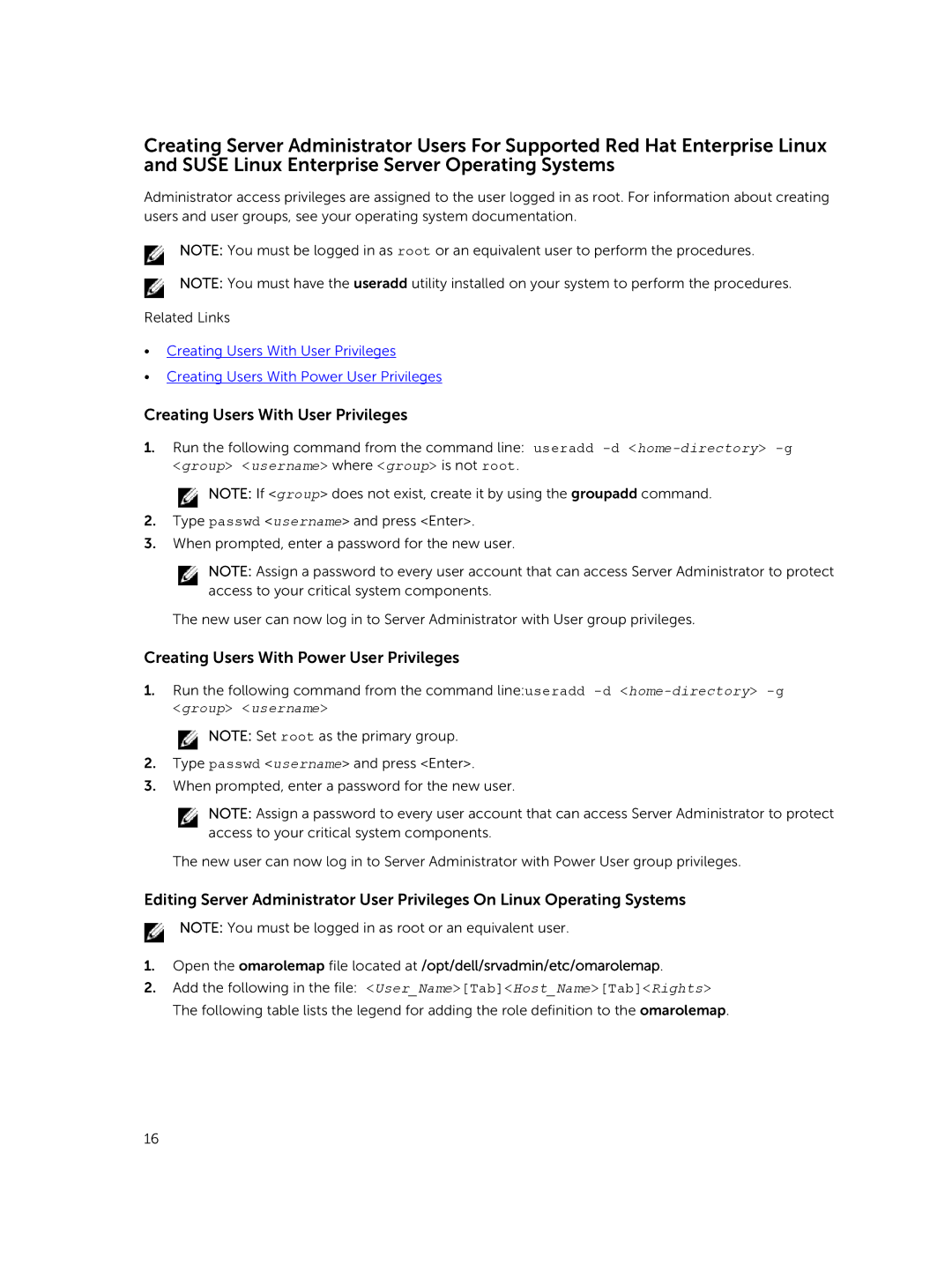
Creating Server Administrator Users For Supported Red Hat Enterprise Linux and SUSE Linux Enterprise Server Operating Systems
Administrator access privileges are assigned to the user logged in as root. For information about creating users and user groups, see your operating system documentation.
NOTE: You must be logged in as root or an equivalent user to perform the procedures.
NOTE: You must have the useradd utility installed on your system to perform the procedures.
Related Links
•Creating Users With User Privileges
•Creating Users With Power User Privileges
Creating Users With User Privileges
1.Run the following command from the command line: useradd
![]() NOTE: If <group> does not exist, create it by using the groupadd command.
NOTE: If <group> does not exist, create it by using the groupadd command.
2.Type passwd <username> and press <Enter>.
3.When prompted, enter a password for the new user.
NOTE: Assign a password to every user account that can access Server Administrator to protect access to your critical system components.
The new user can now log in to Server Administrator with User group privileges.
Creating Users With Power User Privileges
1.Run the following command from the command line:useradd
![]() NOTE: Set root as the primary group.
NOTE: Set root as the primary group.
2.Type passwd <username> and press <Enter>.
3.When prompted, enter a password for the new user.
NOTE: Assign a password to every user account that can access Server Administrator to protect access to your critical system components.
The new user can now log in to Server Administrator with Power User group privileges.
Editing Server Administrator User Privileges On Linux Operating Systems
NOTE: You must be logged in as root or an equivalent user.
1.Open the omarolemap file located at /opt/dell/srvadmin/etc/omarolemap.
2.Add the following in the file: <User_Name>[Tab]<Host_Name>[Tab]<Rights> The following table lists the legend for adding the role definition to the omarolemap.
16
